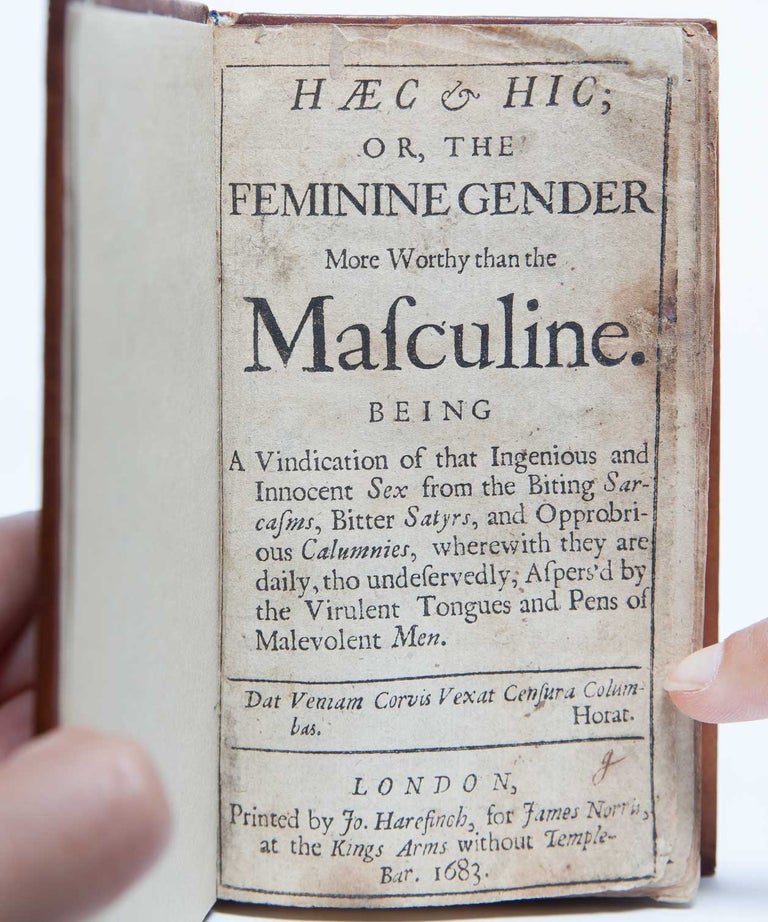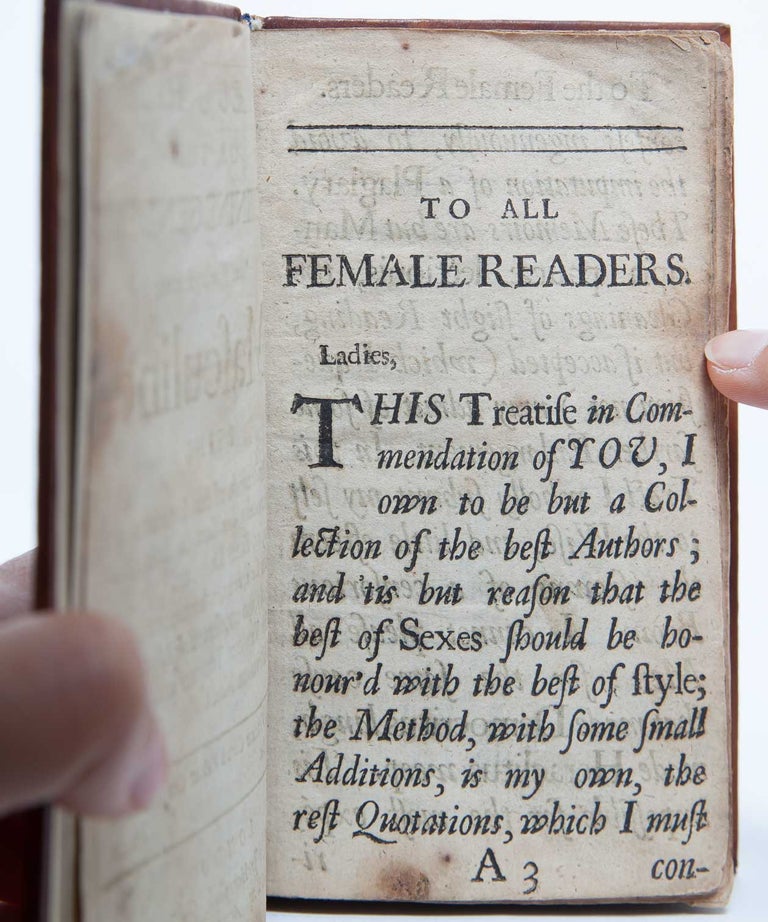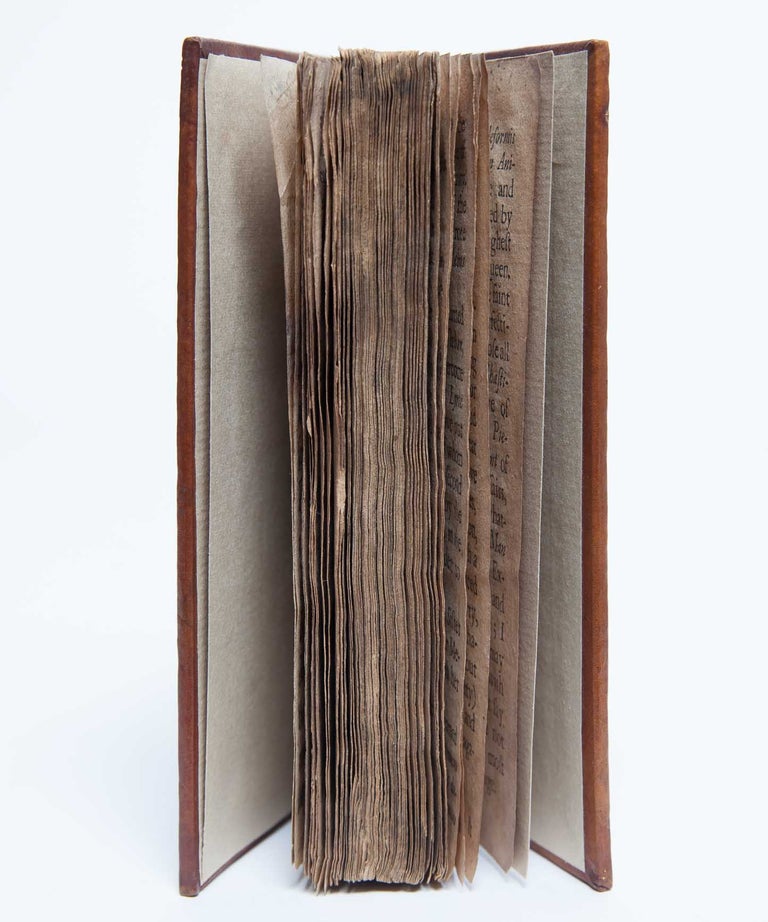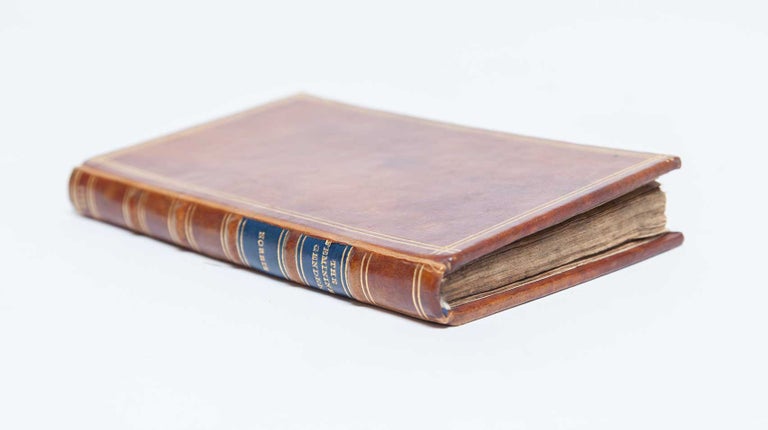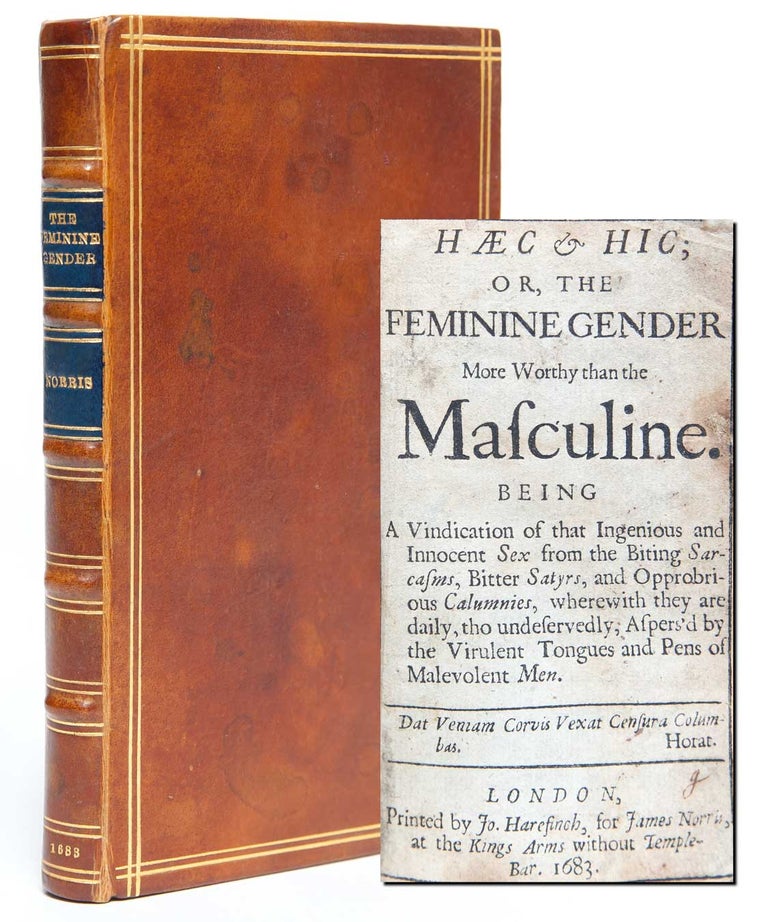Haec & hic; or, the Feminine Gender More Worthy than the Masculine, Being a Vindication of the Ingenious and Innocent Sex from the Biting Sarcasms, Bitter Satyrs, and Opprobrious Calumnies, wherewith they are daily tho undeservedly Aspers’d by the Virulent Tongues and Pens of Malevolent Men.
London: Printed by Jo. Harefinch for James Norris, 1683.
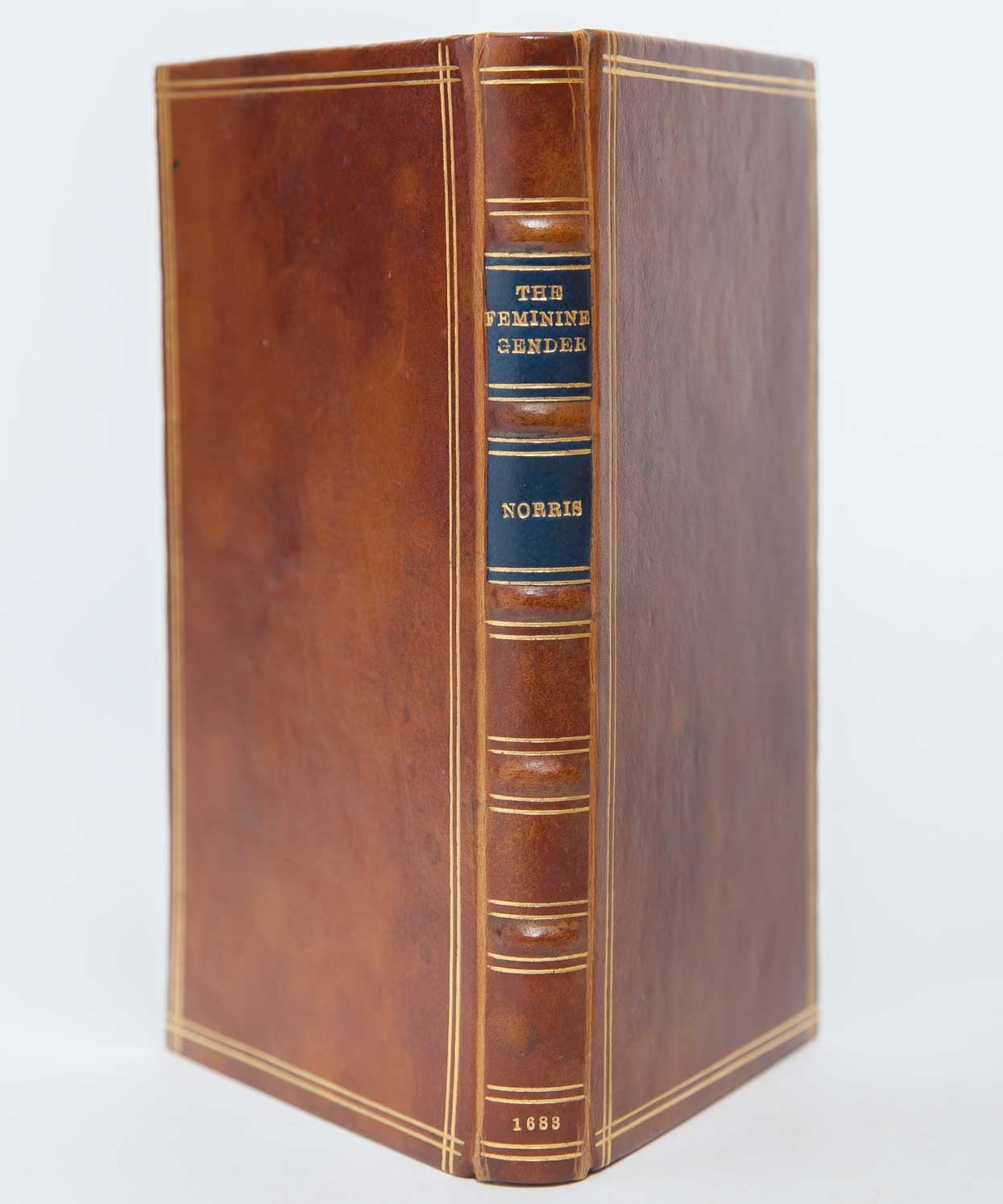

Haec & hic; or, the Feminine Gender More Worthy than the Masculine, Being a Vindication of the Ingenious and Innocent Sex from the Biting Sarcasms, Bitter Satyrs, and Opprobrious Calumnies, wherewith they are daily tho undeservedly Aspers’d by the Virulent Tongues and Pens of Malevolent Men.
London: Printed by Jo. Harefinch for James Norris, 1683. First edition. 20th century full calf binding with gilt to covers and spine; contrasting morocco lettering pieces on spine. Collates complete minus A1 (blank except for signature mark): [6], 165, [1]. Text block tight; some chipping to margins of title page and one corner neatly restored; some minor marginal loss, occasional creases, and age related toning to interior, but otherwise internally clean. An exceptional copy of this scarce early feminist text. The ESTC locates only 7 known copies, and its most recent appearance at auction was at Sotheby’s in 1951.
Norris’ outspoken contribution to the early modern Querelle des Femmes [the Woman Question], in which writers questioned the humanity of women. Norris’ title plays on the Latin feminine and masculine objects (haec and hic, respectively), referencing the infamous Hic Mulier v Haec Vir pamphlet debate of 1620 that accused women (mulier) of endangering social systems with their masculine (hic) behavior. Here, Norris takes up the cause of women and claims “haec” as a term of empowerment, praising women as “the best of Sexes” and drawing on literary, philosophical, and Biblical traditions to undermine contemporary assumptions about women’s inferiority. The accomplishments of women in the face of legal and educational limits, Norris argues, proves their superiority over men. “The sad Fate of Females…they are depriv’d of all means to advance themselves…They climb by Intrusion to Honour and Dignity, not by Title or Merit, not by Rule or Divine Command, but by Strength and might.” What’s more, Norris points out, women’s own determination and strength is turned against them by society, with men using the same qualities valued in masculinity as a means for ridiculing women. “When Woman grows bold and daring, we say she’s Impudent and too like Man; in our selves we magnifie what we condemn in her. Is not this Injustice?” An important and rare text, referencing key works from Cornelius Agrippa, to Richard Braithwait and John Donne. (Item #1943)

